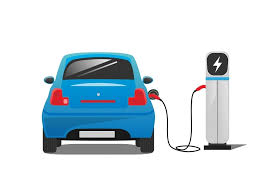
Electric vehicles (EVs) have gained significant popularity in recent years as a cleaner and more sustainable alternative to traditional gasoline-powered cars. However, one of the common concerns that potential buyers have is the upfront cost of EVs compared to conventional vehicles. In this article, we will explore the economics of electric vehicles, specifically focusing on the total cost of ownership (TCO) and the potential savings that can be achieved over the lifespan of an EV.
When considering the economics of electric vehicles, it’s essential to look beyond the initial purchase price and consider the TCO over the vehicle’s lifetime. While EVs may have a higher upfront cost compared to internal combustion engine (ICE) vehicles, there are several factors that contribute to long-term cost savings.
One of the primary cost advantages of EVs is their efficiency. Electric motors are more energy-efficient compared to internal combustion engines, which means that EVs can travel more miles per unit of energy consumed. This translates to lower fuel costs for EV owners. Charging an electric vehicle is typically cheaper than fueling a gasoline car, resulting in significant savings over time, especially as electricity prices tend to be more stable compared to fluctuating oil prices.
Maintenance costs are another area where EVs can provide substantial savings. EVs have fewer moving parts compared to ICE vehicles, which means there are fewer components that can wear out or require regular maintenance. There is no need for oil changes, spark plug replacements, or timing belt adjustments in electric vehicles. Consequently, EV owners can save on routine maintenance and avoid expenses associated with traditional internal combustion engines. Additionally, regenerative braking systems in EVs help to reduce wear on brake pads, leading to longer-lasting brake components.
Moreover, governments and local authorities often provide incentives and tax benefits to promote the adoption of electric vehicles. These incentives can include financial incentives, such as tax credits or rebates, reduced registration fees, or access to carpool lanes. Taking advantage of these incentives can further reduce the overall cost of owning an electric vehicle and improve the financial feasibility of EV ownership.
Another significant factor to consider when assessing the economics of electric vehicles is the decreasing cost of battery technology. The cost of EV batteries has been steadily declining in recent years, and this trend is expected to continue. As battery costs decrease, the upfront price of electric vehicles will become more competitive with conventional cars. Combined with potential savings in fuel and maintenance costs, this trend makes EVs an increasingly cost-effective option.
To accurately assess the TCO of electric vehicles, it is important to consider the specific circumstances of each individual or business. Factors such as electricity rates, driving patterns, available charging infrastructure, and incentives can vary depending on location and personal usage. Therefore, it is recommended for prospective buyers to conduct a personalized cost analysis, factoring in these variables, to determine the potential savings and return on investment for their specific situation.
In conclusion, while electric vehicles may have a higher upfront cost compared to traditional gasoline-powered cars, the economics of EVs favor long-term cost savings. Lower fuel and maintenance costs, government incentives, and the declining cost of battery technology contribute to the overall affordability of electric vehicles. As the market continues to grow and technology advances, the economics of electric vehicles will continue to improve, making them an increasingly attractive and financially viable option for environmentally conscious consumers and businesses alike.
Are you looking for an electric vehicle that will save you money in the long run? Consider the economics of EV ownership and join the growing movement towards sustainable transportation.


